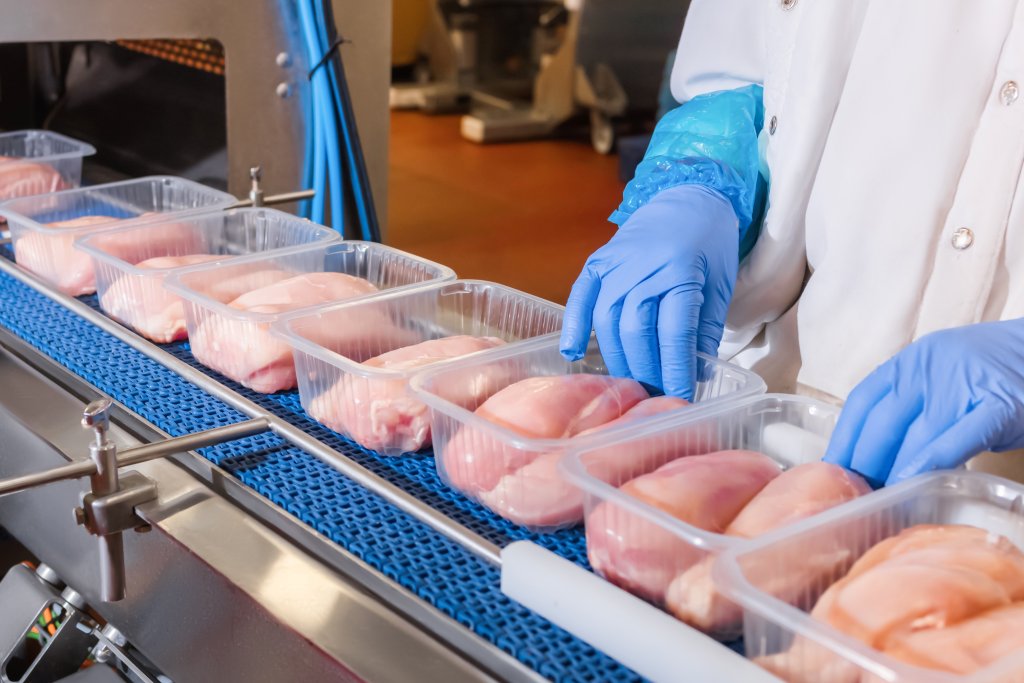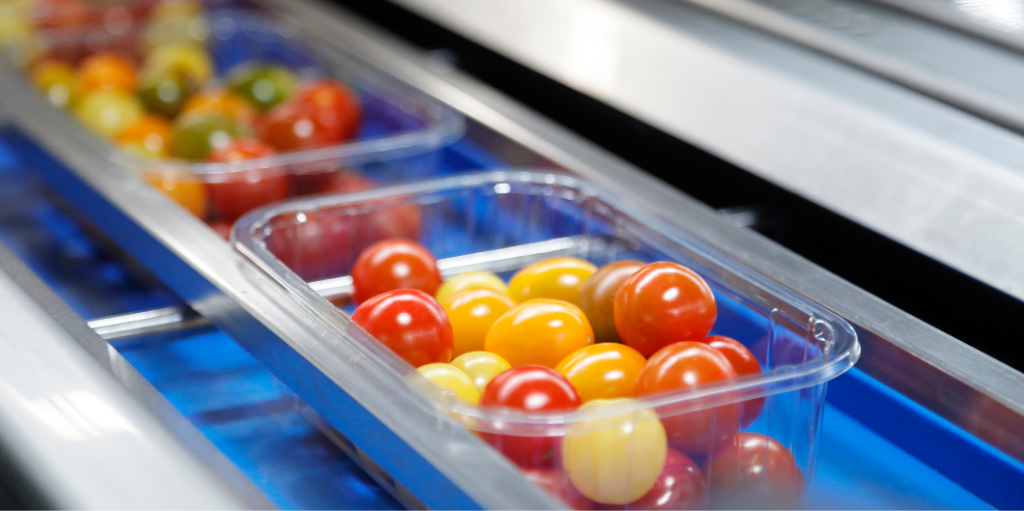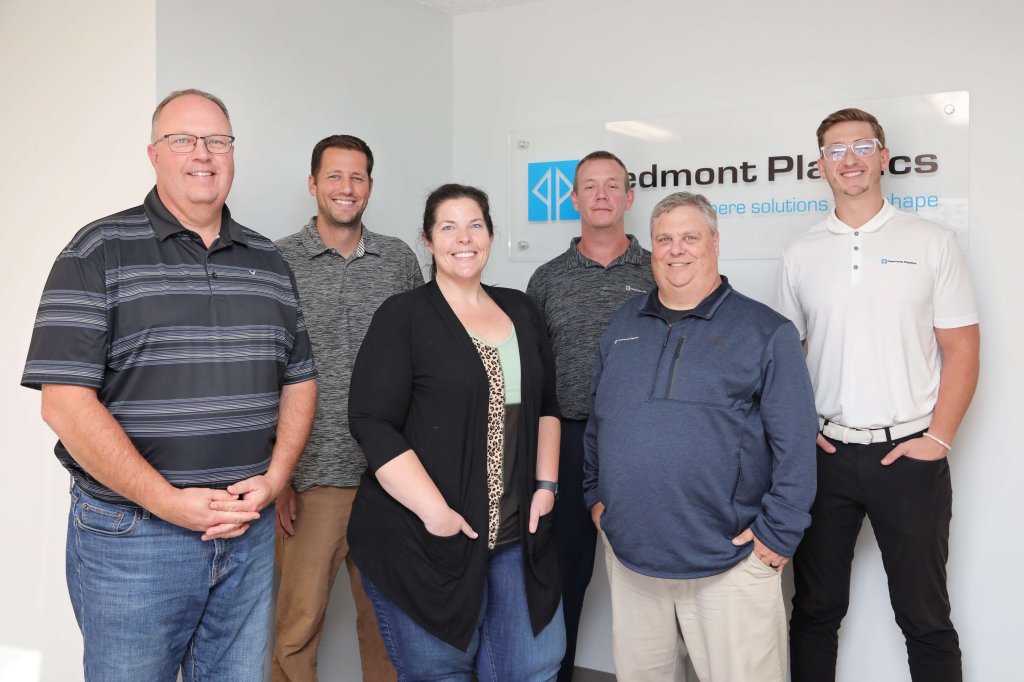The Clear Advantage of Plastic Traceability
Traceability, the capability to track materials across every stage of their lifecycle, is a critical practice that provides clarity, ensures compliance, and supports sustainability goals.
Our team believes in the importance of traceability not merely as a compliance checkbox, but as a cornerstone of responsible operations and consumer trust. By adopting thorough and innovative traceability systems, businesses can confidently assure their stakeholders about product quality, safety, and environmental impact.


An Expert is just around the corner.
With over 100 years of combined product knowledge and industry experience, we are confident our plastics experts can help you find a solution for your application.
What is Plastic Traceability?
Plastic traceability tracks plastic materials from their initial source through processing, manufacturing, distribution, and final delivery. Think of it as a precise and detailed map of the entire plastic supply journey. It documents where a material has been, how it's been handled, its compliance with regulations, and its environmental impact.
Effective traceability combines two essential approaches: physical and digital. Physical traceability involves tangible marking techniques, such as distinct color-coding, unique identifiers, or chemical tracers, helping easily distinguish products at a glance. On the other hand, digital traceability leverages technologies such as blockchain, RFID tagging, and sophisticated tracking software systems. These allow companies to support real-time visibility across the supply chain.
Why Plastic Traceability is Now Necessary
Plastic traceability has shifted from being a recommended practice to a requirement due to growing regulatory scrutiny and consumer demand for transparency.
Implementing effective traceability allows organizations to:
- Stay compliant with rigorous regulations from authorities like the FDA and European Union, avoiding penalties and legal risks.
- Improve quality control by quickly finding contamination or defects, reducing costly recalls and protecting brand reputation.
- Demonstrate sustainability by clearly tracking plastic throughout its lifecycle, enabling businesses to reduce waste, improve recycling efforts, and credibly showcase environmental responsibility.
Blue Plastics Boom
One of the most compelling examples of physical traceability is blue plastics, increasingly used within the food processing industry. Why blue? Simply put, because very few foods naturally feature blue hues, this color becomes a powerful visual standout.
Imagine a manufacturing line filled with fresh, colorful produce. A small fragment of blue plastic (accidentally chipped off machinery or packaging) is instantly noticeable against the vibrant backdrop. This unmistakable visibility allows swift identification and prompt removal, dramatically reducing contamination risks.
But visibility alone is just the start. Blue plastics, like blue acetal and UHMW offered by Piedmont Plastics, also incorporate properties that make them compatible with sophisticated automated detection technologies. Optical sensors, X-ray machinery, and advanced detection systems readily identify these specialized plastics, confirming even higher safety standards.
Achieving Sustainability Goals with Traceability
The significance of traceability extends beyond safety and risk management; it directly contributes to sustainability efforts. With clear traceability data, companies can analyze their environmental impacts more accurately. They can also pinpoint waste reduction opportunities, streamline their recycling practices, and choose more eco-friendly materials or suppliers.
Furthermore, a transparent traceability record helps businesses credibly communicate their sustainability narratives, gaining the trust of environmentally conscious consumers. Our commitment to ecological responsibility means supporting our customers in meeting sustainability objectives through informed material choices and responsible practices.
Traceability as a Risk Management Strategy
Traceability systems protect your business from costly risks, helping you proactively manage potential threats. Without reliable traceability, your organization faces serious consequences, such as financial penalties, legal challenges, costly recalls, and damage to brand trust. A robust traceability framework significantly reduces these risks by:
- Quickly pinpointing the source of contamination or product defects.
- Rapidly isolating affected batches to minimize impact and avoid widespread recalls.
- Efficiently addressing issues to maintain consumer confidence and safeguard your company’s reputation.
Why Companies Trust Us For Traceability
With decades of experience, Piedmont Plastics stands uniquely qualified to help our customers develop, implement, and benefit from sophisticated traceability systems. We offer expert advice, advanced products, and reliable services that ensure regulatory compliance, quality assurance, and sustainability success.
Our blue plastic materials, including highly visible and detectable Acetal and UHMW, are trusted throughout the food processing industry and beyond. These products showcase how physical traceability paired with advanced detection technology can dramatically enhance safety standards.
Additionally, our industry specialists work closely with businesses to navigate the complexities of digital and physical traceability integration, offering solutions that suit every unique requirement.
Confronting Challenges and Overcoming Obstacles
Embracing traceability involves more than new technology; it requires strategic organizational change. Cost and complexity are common concerns, as initial investments can be significant and integrating traceability systems into existing workflows can seem complicated.
However, these challenges are manageable. Thoughtful planning, clear communication, and team training will ease transitions. And with scalable solutions like those Piedmont Plastics provides, the upfront effort pays significant long-term dividends, mitigating risk, ensuring quality, protecting reputation, and improving overall operational efficiency.
How to Integrate a Traceability Strategy
Building a strong traceability system is simpler than it might seem. Follow these steps to embed traceability into your operations effectively:
Map Your Supply Chain Clearly: Start by identifying every step in your product’s timeline, from raw materials sourcing through manufacturing to final distribution. Pinpoint critical checkpoints and clearly document each process.
Set Measurable Goals and Metrics: Establish and monitor specific performance indicators, such as compliance with regulations, authenticity of materials, defect rates, and waste reduction. Clear metrics help measure success and highlight areas for improvement.
Choose the Right Technology: Select technologies that fit your needs, such as blockchain, IoT, or RFID systems, to integrate traceability into your daily operations. These solutions provide real-time updates and detailed insights for immediate action.
Incredible Innovations in Traceability
The future of plastics traceability promises even more exciting possibilities. Emerging technologies such as AI-driven analytics, machine learning, and advanced blockchain solutions offer faster, smarter, and more comprehensive traceability systems. Real-time monitoring and predictive capabilities will allow even quicker identification and resolution of potential problems, further safeguarding quality and sustainability.
At Piedmont Plastics, we are committed to continuously evaluating and integrating these cutting-edge solutions, ensuring our customers stay ahead of regulatory curves and consumer expectations. Traceability is no longer optional; it is necessary. Piedmont Plastics proudly champions this commitment, ready to guide your business toward greater transparency, stronger compliance, and sustainability.
Let’s Trace a Path Forward Together
If you’re ready to explore how advanced traceability solutions can elevate your plastics operation, connect with us today!
Learn More


